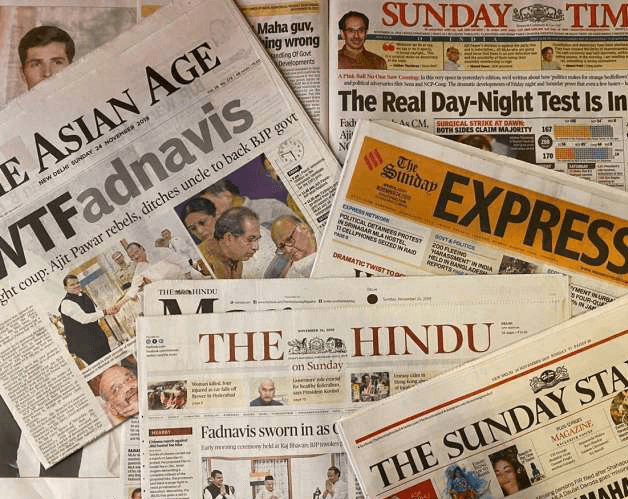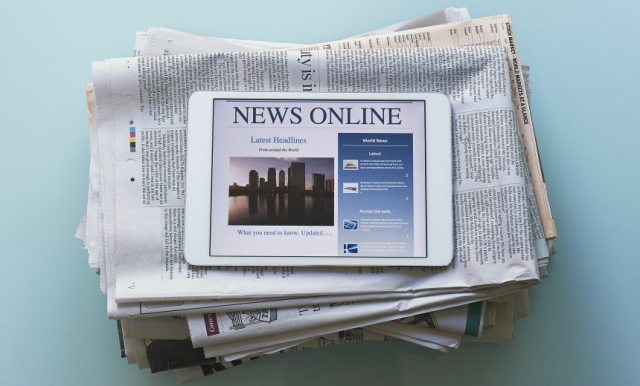4 Easy Facts About Online News Explained
4 Easy Facts About Online News Explained
Blog Article
Online News Things To Know Before You Get This
Table of ContentsThe Ultimate Guide To Online NewsExamine This Report about Online News6 Easy Facts About Online News ShownThings about Online NewsUnknown Facts About Online News
For instance, numbers for the percentage of individuals paying for on the internet news were within the margin of mistake for both studies. Let's very first take into consideration people who have accessibility to news that you would typically need to spend for. It makes sense to begin below because some people have actually access to paywalled information through totally free trials, using their work, and so forth.There are different kinds of access, yet the 3 most typical are memberships to online news from a solitary brand name, memberships to a print/digital bundle from a solitary brand, and a registration to numerous brands aggregated in one location. Of these, digital-only registrations to a solitary brand name are the most typical form of accessibility in all three nations.
Paid news aggregators are reasonably popular in the US, generally many thanks to Apple Information+, however right now these are much less usual than subscriptions to single news brands. As we saw in the Exec Summary, individuals primarily have accessibility to one of a small team of prominent brands. In the United States, over fifty percent of these people have accessibility to either the New York Times or the Washington Post, and in the UK, it's The Times or the Telegraph.
A Biased View of Online News
Many of this team have access since they are paying for registrations with their own cash 75% in Norway and the UK, and 84% in the United States. Online News. For under-45s the figure is lower. Among those 45 and over, the vast bulk of those that have accessibility are paying with their own money.
In the United States and especially Norway, lots of authors have presented paywalls, which indicates more individuals will be asked to pay possibly heightening a sense of deficiency and developing a sensation that news could be worth paying for. In the UK, by contrast, only a fairly handful of publications attempt to bill for news.
Hereof it interests contrast the different factors customers give up the USA and United Kingdom for paying for online information. On the whole, one of the most essential factor is the distinctiveness and top quality of the content. In both nations, subscribers think they are getting far better information than from totally free resources.

Examine This Report on Online News
These added elements appear to be specifically beneficial for retention as they construct routine and are much less replicable somewhere else. For Norwegians as well the distinctiveness of material prevailed in addition to convenience and simplicity of use. 'Aftenposten is a severe paper with fantastic high quality', claimed one respondent, but it was striking that 'sustaining excellent journalism' is less of a motivation (21%) perhaps because mainstream media electrical outlets are seen as less polarised in Norway.
Furthermore, around half of those that currently have open door claim that they could start paying if their totally free access runs out. This is motivating, and probably extra encouraging still is that these numbers indicate retention rates that are similar to those for subscriptions to video clip and audio streaming solutions like Netflix and Spotify.
It can likewise be viewed as a useful suggestion that individuals do not always subscribe permanently, and flaunts regarding the number of 'new customers' may not be informing the entire story (Online News). There's substantial 'churn' around, as lots of people end their free tests before they need to pay, or merely cancel their registrations to spend their cash on various other things
Women, 37, Norway It set you back means way too much and I can obtain round the paywall. Male, 36, United States Too pricey, really felt there was nothing I could not obtain completely free on Apple News. Female, 19, UK In the UK, the number of individuals that used to have actually access to paid information (10%) is close to the variety of individuals that currently have accessibility (9%) with the equal figures from the United States and Norway higher still (albeit less click to investigate than the variety of people with accessibility).
Rumored Buzz on Online News
As we've currently seen, existing customers are relatively happy, however with revenue from electronic advertising and marketing unsure numerous authors will be looking to increase the variety of brand-new clients. In contrasting our 3 nations we see some interesting differences that could educate publisher approaches. We observe a really high percentage (40% in the US and 50% in the UK) who say that nothing might encourage them to pay.
Yet in Norway, where passion in information often tends to be greater and where free news is a lot more restricted just 19% say they could not be persuaded. Price and ease are a few of the crucial factors that can make a distinction. In Norway, a third (30%) claim they could subscribe if it was cheaper and 17% if they could pay to access numerous websites from a solitary repayment.
Publishers have increasingly been offering differential pricing to grab company from those not likely to pay full rate (e.g. abroad clients and trainees). Paying to stay clear of intrusive advertisements is another prospective path for authors, with around one in seven participants in all three countries claiming this this might attract them to subscribe.

Online News - Truths
Some electrical outlets currently ask readers to register with them in order to be able to access a little number of posts for totally free. In all three nations less than half believe registering is a reasonable trade, however it's additionally clear that individuals are not highly opposed either.
Between 13% and browse around this web-site 22% in our three countries state they registered to accessibility news web content in the in 2014. Some are also making use of various other methods to obtain around paywalls such as resetting cookies, transforming their browser settings, or perhaps downloading committed software program. Just a third say they have actually ever tried to do something like this, as it requires a particular level of digital literacy, and several are More hints most likely not aware that is a possibility.
Individuals have different views about the civil liberties and wrongs of attempting to sidestep paywalls. Couple of would suggest that this is always justifiable, but some individuals do have reservations about vital public-interest journalism only being readily available to those prepared and able to pay for it. A paywalled expos of the UK government's handling of the coronavirus episode by the Sunday Times resulted in a warmed dispute about the issue on Twitter, with some trying to honestly share the full short article.
Report this page